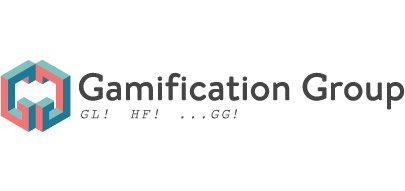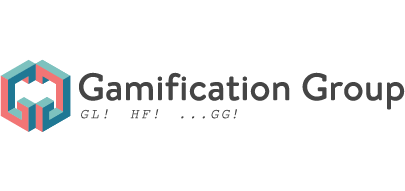2 Fully-funded Doctoral Researcher Position Related to Technology-induced Altered States of Consciousness / Digital drugs (4 years)
Are you passionate about exploring the frontiers of human consciousness and the potential of technology to shape the future? As a doctoral student in our team, you willl have the opportunity to explore cutting-edge and future potentials for digital drugs and other innovative tools for altering states of consciousness. You’ll also get to delve into the exciting field of futures studies, helping to anticipate and shape the trends that will shape the world of tomorrow. Whether you’re a seasoned professional or just starting out in your career, this is a unique opportunity to make a real difference and be at the forefront of some of the most exciting developments in the field.

The Gamification Group is excited to announce openings for Doctoral Researchers in the upcoming project DIAL: Futures research into socio-cultural implications of DIgitally induced ALtered states of consciousness. DIAL is funded by the Kone Foundation and is led by Professor of Gamification Juho Hamari.
The use of new technologies and art (such as psychedelic VR environments, binaural soundscapes, etc.) to induce Altered States of Consciousness (ASoC) is an emerging phenomenon and is part of the continued integration of technology into all facets of human life and culture. The current pace of change means it is not difficult to conceive a future where digital products which induce Altered States of Consciousness (ASoC) are a commonplace feature. While such technologies are not yet a reality, it is necessary to examine this issue in order to explore, understand, and anticipate the possible ramifications of digitally-induced ASoC across a range of socio-cultural domains.
DIAL researches the possible futures of digitally-induced ASoC and their implications for individuals and for society; the research combines anticipatory anthropology with futures research in order to identify and investigate the social, cultural, legal, and economic effects of digitally-induced ASoC. By examining areas of interest through the lens of futures research DIAL provides insights related to contemporary issues of note, such as biohacking, digital security, and problematic media consumption.
In addition to producing scientific output, a key aim of DIAL is to inform and engage with the public and wider societal stakeholders throughout the course of the project.
Working Environment
The accepted candidates will work in close collaboration with the members of Gamification Group as well as in the context of the larger strategic profiling area of the Tampere University in Gamification, Extended Reality, and their application towards holistic sustainability.
Gamification Group (GG) at Faculty of information Technology and Communication Science, Tampere University is led by Professor Juho Hamari and is internationally renowned for seminal academic and societal contributions in the areas of novel technologies such as motivational information systems, internet commerce, new media and human-computer interaction. GG is especially recognized as the birthing ground for the general umbrella field of gamification research, in which it is one of the most prolific research groups internationally. The guiding principle of GG is to pursue gameful approaches to encourage the healthy development of the planet, people, and prosperity. See more: https://webpages.tuni.fi/gamification/
Tampere University and Tampere University of Applied Sciences create a unique environment for multidisciplinary, inspirational and high-impact research and education. Our universities community has its competitive edges in technology, health and society. Read more: www.tuni.fi https://www.youtube.com/watch?v=iXOUJvhwTb4
Job Description
The candidate’s work will be focused on conducting doctoral research towards completion of a doctoral dissertation within the DIAL project. It will mainly consist of research activities including research planning, workshop organising, data gathering, data analysis, article preparation, dissemination and publishing. Moreover, the candidate is expected
to participate in project-wide research efforts and further funding acquisition. Possible teaching load might be negotiated.
If not already enrolled, selected candidate(s) will be expected to enroll in an applicable doctoral program at the Faculty of Information Technology and Communication Science in the spring of 2023. It will be possible to discuss alternative arrangements for any candidates who are already enrolled in another doctoral program. The candidates will work on the project DIAL: Futures research into socio-cultural implications of DIgitally induced ALtered states of consciousness.
Requirements
The ideal candidate for this position should have a background in social sciences or humanities alongside a strong interest in emerging and future technologies and digital experiences, futures research, and speculative and/or design research. Moreover, the candidate should strive for proficiency and scientific rigor in interdisciplinary and multi-method contexts.
Additionally, due to the aims and approaches of the project, doctoral researcher(s) accepted to the position would be expected to proactively and independently build networks in industry, societal, policy, educational, and other stakeholders, engage with them in all stages of research, as well as actively engage with media outlets.
Doctoral student(s) will be supervised by Professor Juho Hamari and the project’s two Postdoctoral Researchers – Mila Bujić and Joseph Macey.
- Minimum qualifications:
- Applicable degree: i.e. Master’s degree or equivalent
- Applicants are required to possess some of the following expertise and abilities:
- New media and technologies
- Futures research methods
- Designing and conducting interviews and workshops with a variety of stakeholders; qualitative data analysis (e.g., reflexive thematic analysis)
- Designing and conducting online experiments or surveys; quantitative data analysis (e.g., null hypothesis testing, exploratory data analysis)
- Advantageous qualities:
- Understanding of the wider socio-technological context in modern societies
- Holding strong values in building sustainable and societally beneficial technological futures
- Strong interest in science fiction and technology history
- Drive for impeccable academic article writing/preparation productivity
- Drive for rigorous and impactful research
- Drive for a career in research
The Position
- Duration: Fixed-term position is fully funded until the end of 2026.
- Start date: Immediately or as soon as possible.
- Grant: Doctoral researcher(s) will be funded through a grant-based project (DIAL), with the fixed annual monetary compensation of 30 000 EUR for the duration of the position, as determined by the funder. Grant-based income is exempt from income tax in Finland up to approximately 24 000 EUR/year but grant holders are required to pay MELA pension insurance (approximately 15% of the grant amount). In addition to receiving the grant from Kone foundation, the candidate will be a doctoral student of the university, and therefore, enjoying the benefits and services rendered by the Tampere University such as office spaces, IT services, equipment and so forth.
See more at:
https://www.vero.fi/en/individuals/tax-cards-and-tax-returns/income/earned-income/grants/
https://www.mela.fi/en/grant-and-scholarship-recipients/
How to Apply
The closing date for applications is 28 February 2023 (at 23.59 EET / 20.59 UTC). Please write your application and all accompanying documentation in English and attach them in PDF format only.
List the attachments that candidates should append to their applications:
- CV
- A letter (max 1000 words) that briefly outlines motivation to apply, background and skills related to positions, tentative research questions/ideas, earliest starting date, and any other miscellaneous remarks that the candidate wishes to make
- One or two samples of academic writing (e.g., course work or research article)
Please submit your documents to Joseph Macey joseph.macey@tuni.fi.
Inquiries
Juho Hamari, Professor juho.hamari@tuni.fi
Mila Bujić, Postdoctoral Researcher mila.bujic@tuni.fi
Joseph Macey, Postdoctoral Researcher joseph.macey@tuni.fi
Tampere University and Tampere University of Applied Sciences create a unique environment for multidisciplinary, inspirational and high-impact research and education. Our universities community has its competitive edges in technology, health and society www.tuni.fi/en
Life in Tampere

Tampere is one of the major academic hubs in the Nordic countries and offers a dynamic living environment. Tampere region is one of the three most rapidly growing urban areas in Finland and home to a vibrant knowledge-intensive entrepreneurial community. The city is an industrial powerhouse that enjoys a rich cultural scene and a reputation as a centre of Finland’s information society. The city campus of the Tampere University, where the candidates will be located, is within walking distance of the city centre, and is an international centre of game research. For more information on Tampere and Finland, please visit:




Sorry, the comment form is closed at this time.